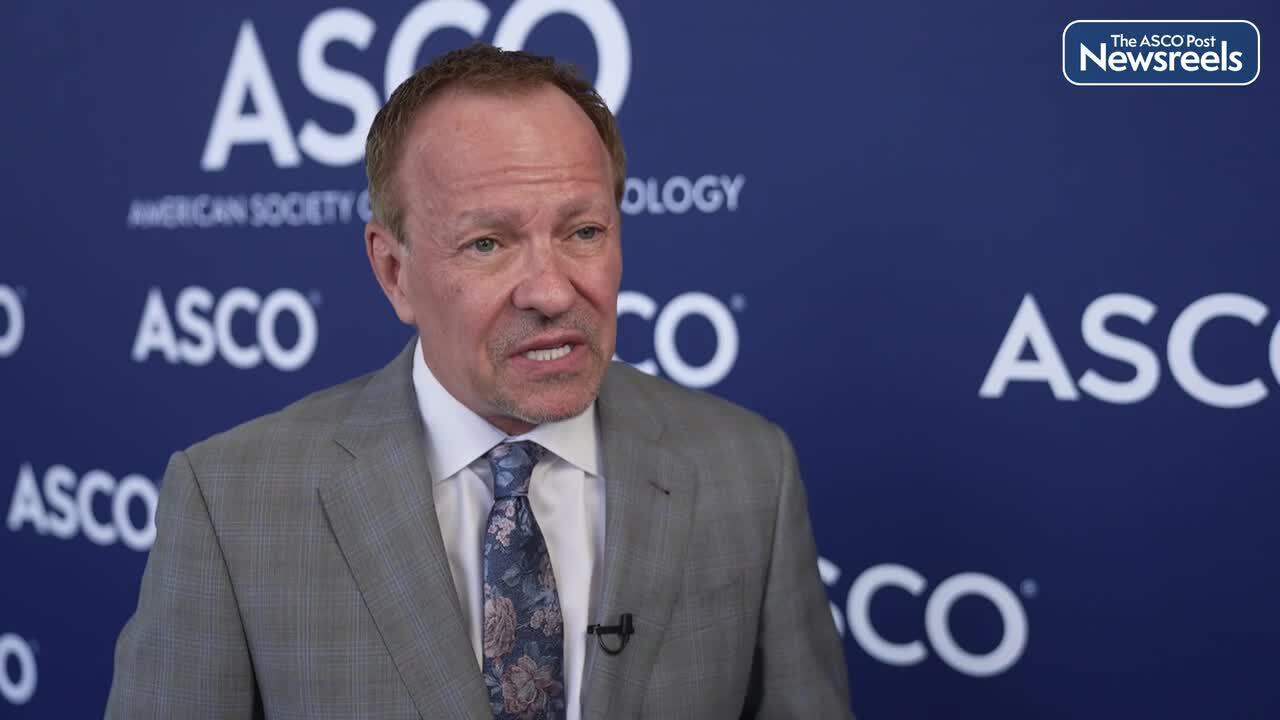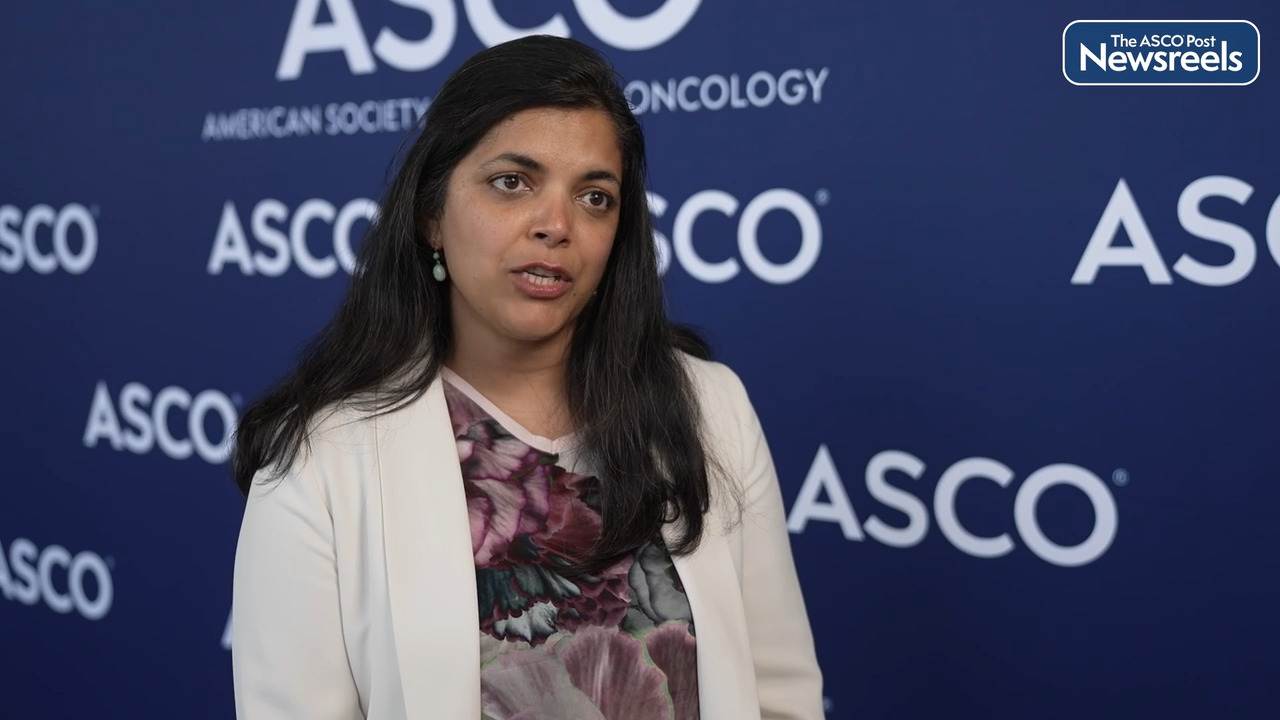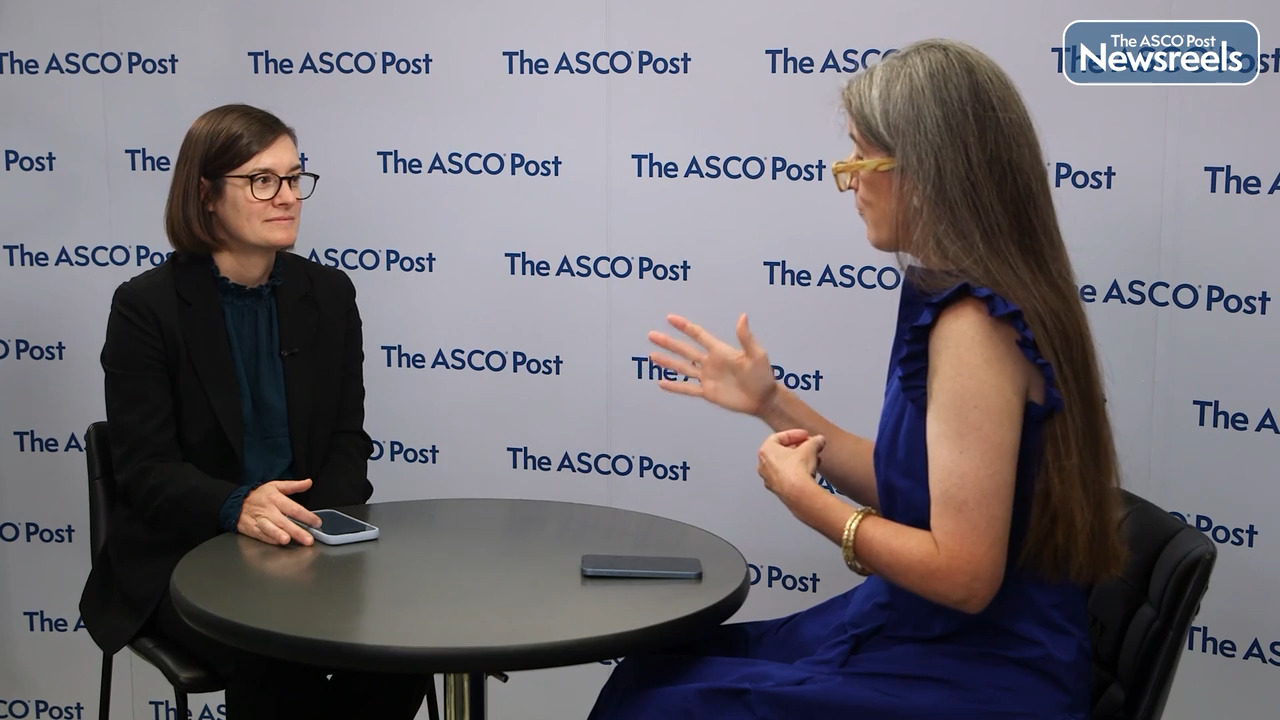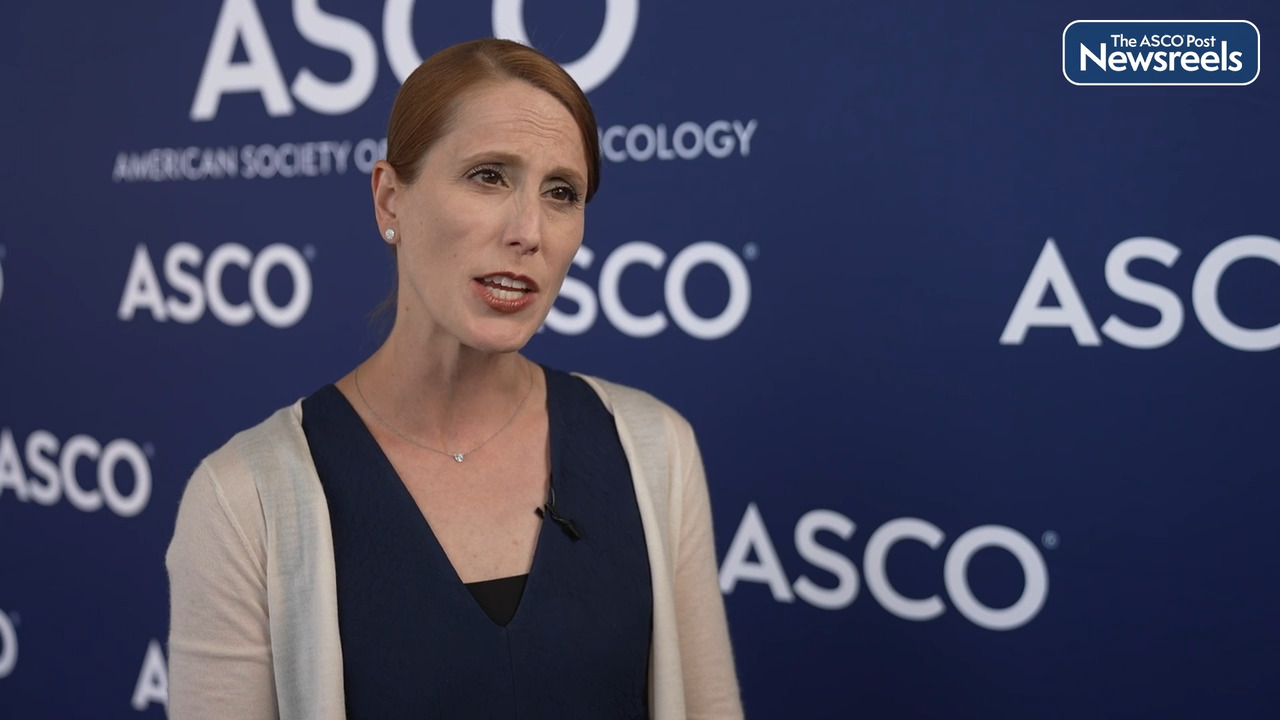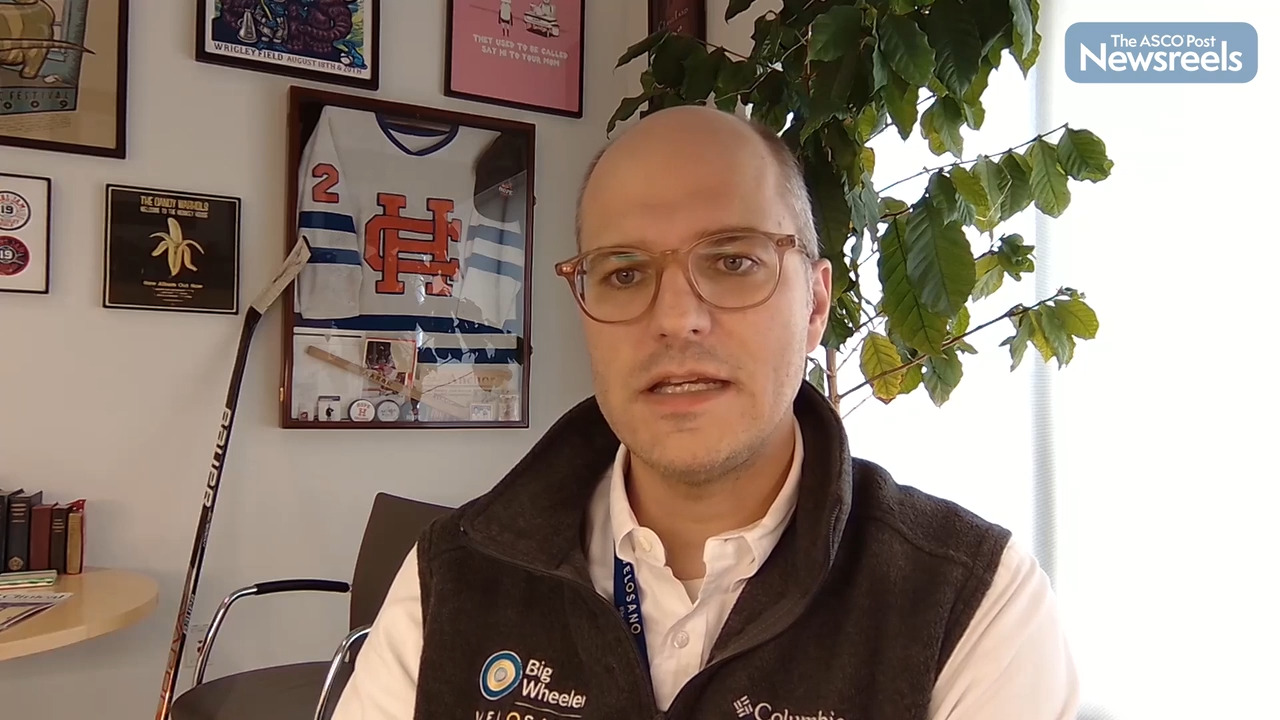Jennifer L. Crombie, MD, on DLBCL: Real-World Outcomes With Novel Therapies in Relapsed or Refractory Disease
2023 ASCO Annual Meeting
Jennifer L. Crombie, MD, of Dana-Farber Cancer Institute, discusses the historically poor outcomes for patients with relapsed or refractory diffuse large B-cell lymphoma (DLBCL). Her study examined real-world data on the use of novel therapies in this population and found that outcomes with second- and third-line regimens of polatuzumab vedotin-piiq plus bendamustine and rituximab and tafasitamab plus lenalidomide remain suboptimal, with worse outcomes particularly after chimeric antigen receptor T-cell therapy (Abstract 7552).
Transcript
Disclaimer: This video transcript has not been proofread or edited and may contain errors.
Jennifer L. Crombie, MD:
We know that the treatment landscape of diffuse large B-cell lymphoma or DLBCL has significantly evolved over the past few years since the availability of multiple new therapeutic options that are now FDA approved for this disease. The outcomes of patients in the real world setting utilizing these novel agents, however, remains less clearly described. In our study, we utilize the CODA Electronic Health records database, which consists of patient demographic and clinical information from both academic and community practice sites across the United States.
We identified over 5,700 patients with a diagnosis of DLBCL in the database. And further within this cohort, we identified 175 patients with relapsed refractory disease, who had been treated with a novel therapy. Novel therapies consisted of chimeric antigen receptor T-cell therapy, or CAR-T therapy, Tafasitamab plus Lenalidomide, Polatuzumab plus Bendamustine and Rituximab, and along Cetuximab, there were no patients in the database treated with Selinexor.
Patients were also required to have at least one post index response assessment or date of death recorded following their treatment with the novel therapy. Patients were further classified as having received two or more versus three or more lines of therapy. We next examined outcomes within each treatment group. We found that outcomes were best among the patients treated with CAR T-cell therapy with overall response rates of approximately 75% and a median overall survival of 27 in 18 months, in patients who had received two or greater versus three or later lines of therapy.
Outcomes were poorer among patients who had received other novel therapies. Those patients treated with Polatuzumab based regimens had an overall response of approximately 60% and a median overall survival of 7.5 months. And patients treated with Tafasitamab based regimens had response rates ranging from 35 to 40% depending on the line of therapy and a median overall survival of approximately six months.
Patients treated with novel therapies after CAR T-cell had a particularly poor outcomes with overall survivals of less than three months. While it's encouraging that novel therapies are now available for patients with relapse or refractory DLBCL, our data highlight the persistent poor outcomes that are seen in the relapsed refractory setting, particularly after CAR-T relapse and the urgent need for ongoing treatment options in this space. Thankfully, other drugs including CD20, CD3 bispecific antibodies, as well as other novel therapies and combinations are being studied in ongoing clinical trials.
The ASCO Post Staff
Bradley J. Monk, MD, of the University of Arizona, Phoenix, and Creighton University, discusses phase III findings from the KEYNOTE-826 study of overall survival results in patients with persistent, recurrent, or metastatic cervical cancer. Study participants received first-line treatment of pembrolizumab plus chemotherapy, with or without bevacizumab, which reduced the risk of death by up to 40% in three different subsets of patients (Abstract 5500).
The ASCO Post Staff
Manali K. Kamdar, MD, of University of Colorado Hospital, discusses the treatment landscape for the 30% to 40% of patients with diffuse large B-cell lymphoma (DLBCL) whose disease will relapse. Patients who experience relapse within 1 year of chemoimmunotherapy have poor outcomes with autotransplantation, but chimeric antigen receptor T-cell therapy has shown efficacy and manageable toxicity.
The ASCO Post Staff
Bobbie J. Rimel, MD, of Cedars-Sinai Medical Center, and Kathleen N. Moore, MD, of the Stephenson Oklahoma Cancer Center at the University of Oklahoma, discuss phase III results from the MIRASOL trial, which showed that mirvetuximab soravtansine-gynx prolonged overall survival vs investigator’s choice chemotherapy in patients with platinum-resistant ovarian cancer with high folate receptor-alpha expression. The findings suggest a new standard of care for this disease (Abstract LBA5507).
The ASCO Post Staff
Sarah K. Tasian, MD, of Children’s Hospital of Philadelphia, summarizes three studies presented at ASCO: genomic determinants of outcome in acute lymphoblastic leukemia (ALL), a phase III trial of inotuzumab ozogamicin for high-risk B-cell ALL, and preliminary results from the first-in-child phase II trial of bosutinib in pediatric patients with newly diagnosed chronic myeloid leukemia (Abstracts 10015, 10016, and 10017).
The ASCO Post Staff
Aaron T. Gerds, MD, of Cleveland Clinic Taussig Cancer Institute, talks about treating the anemia many patients with myelofibrosis experience because of JAK inhibitor therapy. The ACE-536-MF-001 study showed that luspatercept improved anemia and transfusion burden in this population, with a safety profile consistent with that in previous studies (Abstract 7016).
